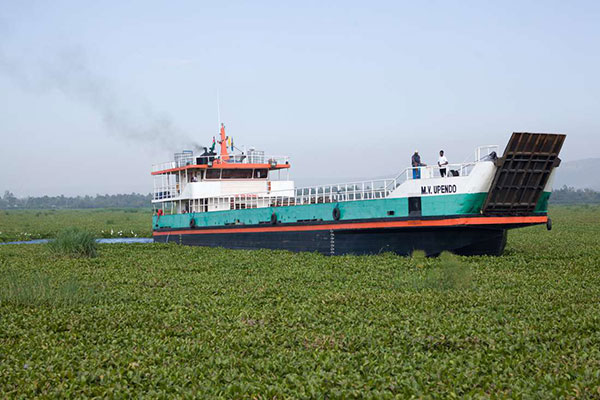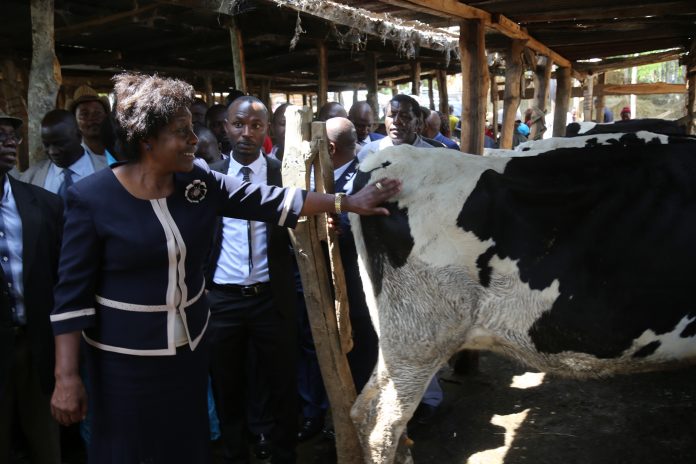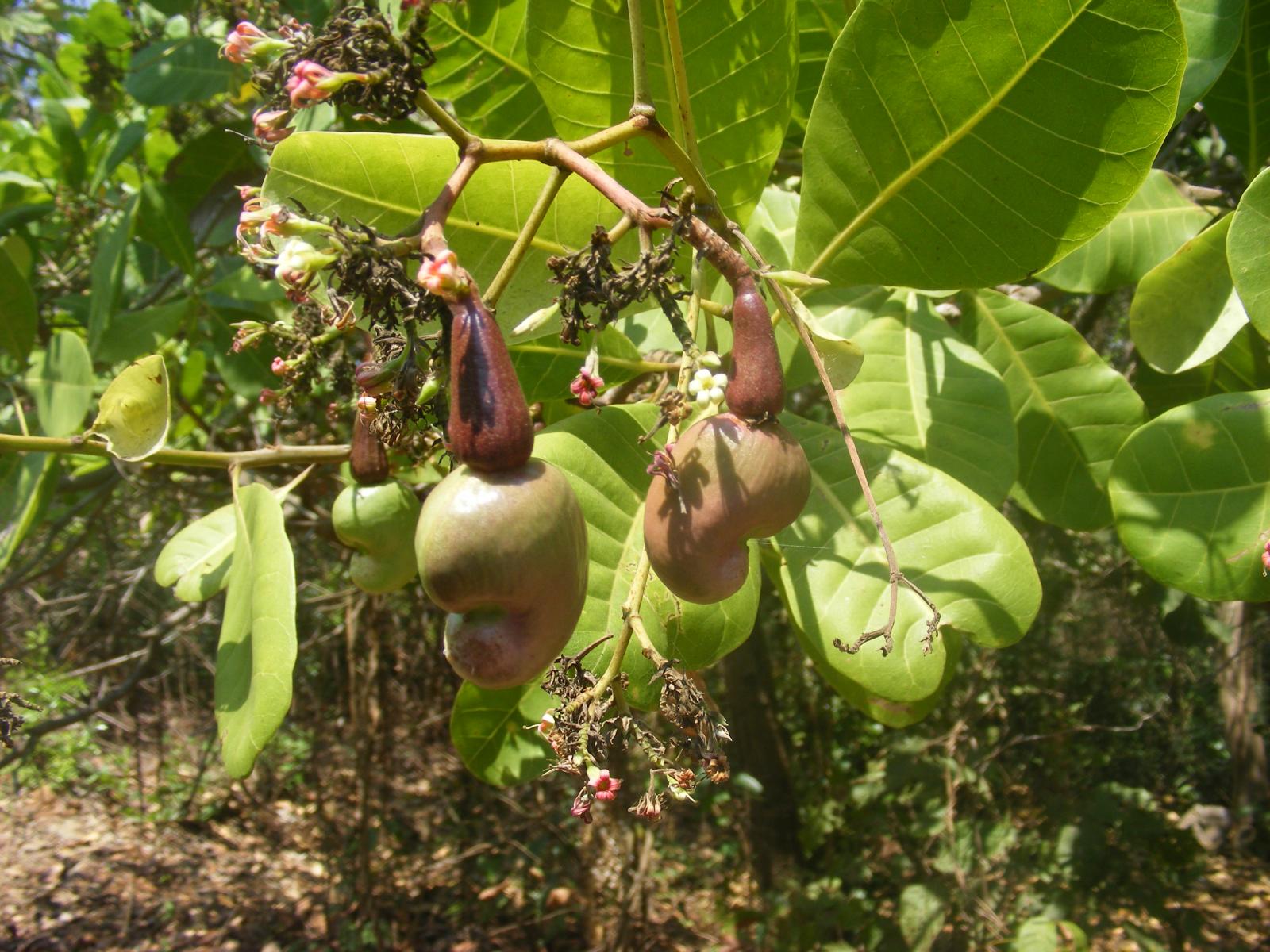- Hits: 10476
Government launches project to eradicate water hyacinth in Lake Victoria to benefit fish farmers
The Kenyan government has launched plans to eradicate the water hyacinth menace in Lake Victoria, a weed that has led to dwindling fish production affecting fish farmers’ lives by reducing their income.
According to the 2018 economic survey report, Kenya’s fisheries sub sector has declined over the last three years from Sh25.5bn earned in 2014 to Sh22.9bn earned last year due to the encroachment of the weed. In this, the total quantity of fish landed declined from 147.7 thousand tonnes in 2016 to 135.1 thousand tonnes in 2017.
The survey reveals that Lake Victoria’s fish annual output dropped from 98.7 thousand tonnes in 2016 to 92.7 thousand tonnes in 2017.
A 70m long dredging vessel weighing 4,000 tonnes and water hyacinth harvester machines will be used to clean the lake where the weed has blocked beaches and reduced movement of boats and fishing vessels.
Some fishermen have abandoned fishing all together in a bid to find alternative sources of income.
Related content
Murang’a poultry, dairy, banana and fish farmers get Sh200m fund to boost production
Nyeri farmers adopt cage fish farming from fellows living at the shores of Lake Victoria

Michael Otieno, a former fisherman for instance left his fishing job in 2011 and took advantage of the weed turning it into a business opportunity to produce eco-friendly paper bags from the weed
“My enterprise is part of the environmental solution in fighting the effects of the weed in Kenyan lakes; I have been making business cards, book covers, envelopes and gift bags since 2011,” said Otieno.
He currently employs five to 10 casuals who collect the weed from the shores of Lake Victoria manually by hand. The weed is then transported to his business premises where it’s chopped using knives and then dried on the sun with the aid of his five permanent employees. It takes approximately eight to 12 hours for the weed to dry but depending on the weather patterns it may take 2 days to be completely dry.
After it has dried, the weed is crushed using a pulping machine and mixed with water then suspended on a wire frame where particles are sieved and the remainder is used to make pulp.
Once the paper is dry, it is passed through a calendaring machine which presses the paper to obtain a smooth finish.
Some of his clients include the Kenya Climate Innovation Center (KCIC), gift shops and book publishers who make orders of up to 2,000 items per month. He sells an A4 gift bag for Sh150 and an A5 for Sh75. However, the items are tailor made to suit customers’ demands.
But now with the expected removal of the weed, Otieno plans to move to other alternatives to make paper such the papyrus reed and the banana pseudo stem and he does not plan to fish in future.
As for fish farmers, removal of the weed will breathe a new lease of life to the fish population as they will now have adequate oxygen supply previously blocked by the weed.
Write comment (0 Comments)



 Kitui Governor H.E. Charity Ngilu admiring a dairy cow at a past agricultural event. Over 100,000 farmers in the county are set to benefit from an artificial insemination to boost their production. Photo courtesy.
Kitui Governor H.E. Charity Ngilu admiring a dairy cow at a past agricultural event. Over 100,000 farmers in the county are set to benefit from an artificial insemination to boost their production. Photo courtesy. Cashew nuts. Production of the crop has declined in the previous years due to neglet by farmers and other stakeholders. Photo credit: Dr. Raju Kasambe.
Cashew nuts. Production of the crop has declined in the previous years due to neglet by farmers and other stakeholders. Photo credit: Dr. Raju Kasambe.










